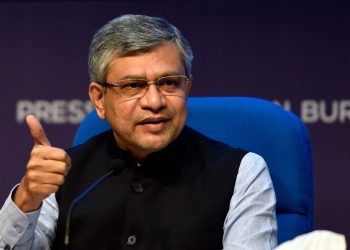New Delhi | The All India Insurance Employees’ Association (AIIEA) has strongly objected to the Indian government’s recent policy change allowing private sector professionals to be considered for top positions in public sector insurance companies. The union expressed concerns that the decision may lead to growing private sector influence and, ultimately, a shift towards privatization.
The association stated that bringing in external candidates to lead these institutions could demotivate current officers who have devoted their careers to public service. They believe this decision undermines the principles of nationalization, which historically aimed to ensure financial services serve the collective public interest rather than private gain.
“These revised rules potentially open the floodgates for private sector influence, endangering the public sector character of these financial institutions,” the union warned in an official release.
Policy Shift Affects LIC and Other State-Run Insurers
Currently, Life Insurance Corporation of India (LIC) operates with four Managing Directors (MDs), alongside a MD & CEO. As per the updated guidelines, one of the MD positions at LIC will now be open to applicants from both public and private sectors. Similarly, CMD roles in public non-life insurance firms will also welcome private applicants.
This development comes amid an ongoing transformation in how public financial institutions recruit leadership, with a focus shifting from seniority-based promotions to merit-based selections.
Union Warns of Internal Disruption
The AIIEA cautioned that hiring private sector professionals through lateral entry could disrupt career growth opportunities for existing employees and significantly impact morale. The association also raised concerns over the government’s plan to bypass the current Annual Performance Appraisal Report (APAR)-based evaluation system in favor of assessments conducted by private HR agencies.
Such changes, according to the union, could fundamentally alter the transparent, Parliament-mandated framework used to appoint senior executives in public sector insurance companies.
Mixed Views Among Industry Experts
While the union voices strong opposition, some experts see potential benefits. Nilesh Sathe, a former member of the Insurance Regulatory and Development Authority of India (IRDAI), believes the move could bring valuable expertise from the private sector.
“The insurance industry in India has grown significantly in the past 25 years. It’s now mature enough to attract capable professionals from the private sector, who bring specialized knowledge and fresh perspectives,” Sathe commented.
He also noted that LIC has previously filled critical roles such as Chief Financial Officer and Chief Compliance Officer through external hiring since its public listing.
However, Sathe admitted challenges remain — especially regarding the significantly lower salaries in public institutions compared to private firms. It is unclear whether top private candidates would accept the pay cuts involved in joining LIC or other public insurers.
Upcoming Leadership Changes in Focus
As of now, LIC’s leadership includes R Doraiswamy as MD & CEO, with Sat Pal Bhanoo, Ratnakar Patnaik, and Dinesh Pant serving as MDs. Recently, R Chander was recommended as the fourth MD by the Financial Services Institutions Bureau — a decision unlikely to be affected by the new rules.
However, with Bhanoo’s tenure ending in January 2026, his successor could be chosen under the revised norms. Similarly, the CMD post at General Insurance Corporation of India became vacant after N Ramaswamy’s term concluded in September 2025.
Looking Ahead
While the government asserts that the goal is to encourage merit-based leadership and infuse private sector efficiency, the union and others remain wary. The real impact of this policy will only become clear over time — especially on employee morale, leadership effectiveness, and the future direction of India’s public insurance sector.











Discussion about this post